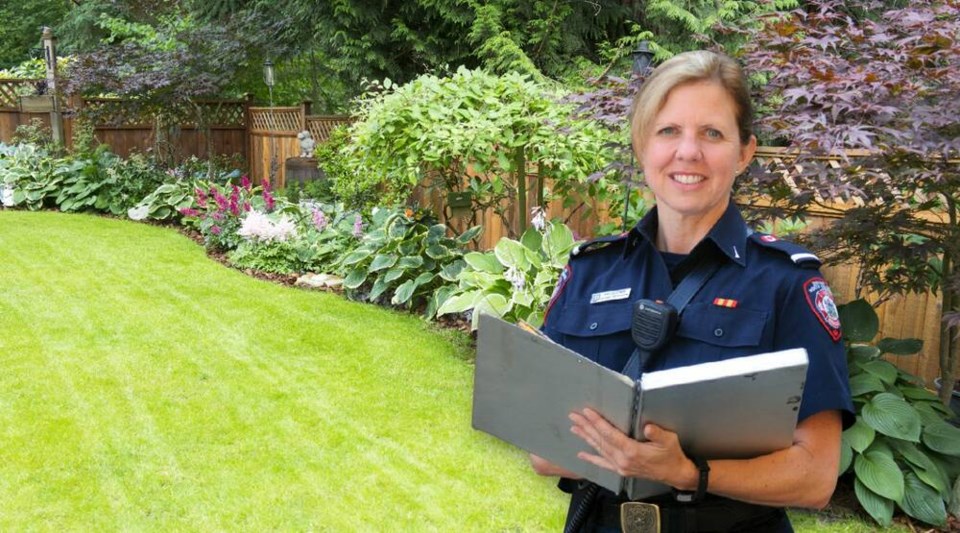While the threat is lower than in other areas of the province, the North Shore isn’t immune to wildfires, and risk continues to mount over time.
The areas in our region most susceptible to wildfires are locations where the forest meets the community, and District of North Vancouver Fire and Rescue Services is encouraging people who live in the 7,000 or more homes in those regions to get a free safety assessment.
If you live in the district’s Wildfire Hazard Development Permit Area, also called the wildland-urban interface, you can put in a request for a professionally trained wildfire mitigation specialists to visit your home to perform an in-depth FireSmart assessment.
According to DNVFRS, they will walk around your home with you, pointing out any areas where you can reduce the risks of a fire jumping from the forest to your home.
A specialist will then create a report with specific recommendations. When you meet all the mitigation requirements, you’ll be issued a certificate. And that certificate can help with home insurance, said DNVFRS captain Conrad Breakey.
“It gives the homeowner a checklist and a roadmap of what to do and how to do it to meet the standards set out by FireSmart Canada to prepare their house as best as possible to mitigate forest fires,” he said. “I’ve heard of one or two insurance companies who will accept that and even go so far as to reduce insurance rates.”
To apply, visit the FireSmart website and a co-ordinator will contact you to set up an appointment. DNVFRS said the surveys are purely for homeowners’ benefit and carry no risk or commitments.
The department points to research showing that many homes ignite in wildfires due to the condition of the house and surrounding vegetation.
“For instance, adding a non-combustible roof gives your home a 70-per-cent chance of surviving a wildfire, and if you also manage the vegetation within a 10-metre radius following FireSmart recommendations, the survival rate for your home jumps to 90 per cent,” reads a statement on DNVFRS’s website.
Breakey said the goal of the program is to get as many people to register as possible.
While this new initiative is quite thorough and involved, it’s an evolution of programs in past years. Last year, the district offered a home safety checklist. They’ve also worked with communities, like Camp Jubilee in Indian Arm, to certify whole areas as FireSmart.
District firefighters recognize the hazard of living on the North Shore because of the densely forested areas that intermingle with residential areas.
“We’ve got entire communities living in the woods,” Breakey said.
Big wildfires can restore natural cycles of forest health, but because of advanced firefighting activity and increased awareness in the general public, there hasn’t been any kind of major forest fire on the North Shore in at least 100 years.
“Because of interrupting that natural cycle, there is an increase of fuel on our forest floors,” Breakey continued.
“We also have a much higher concentration of recreational users. … Trails and canyons are easily accessible to the public,” he said. “That increase in human foot traffic does also increase the risk as well.”
Breakey noted that we’re seeing hotter, drier summers, and spending more time in the extreme or high forest fire danger ratings.
“Just the weather patterns alone are increasing the risk to us for sure.”




